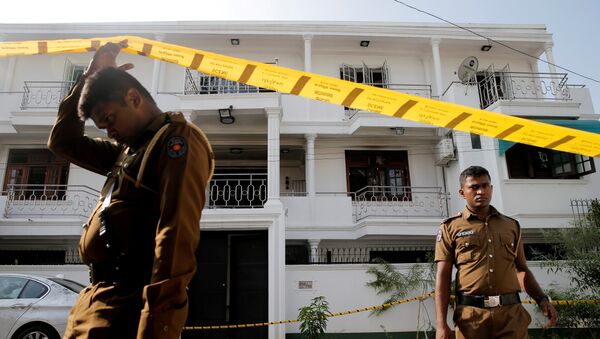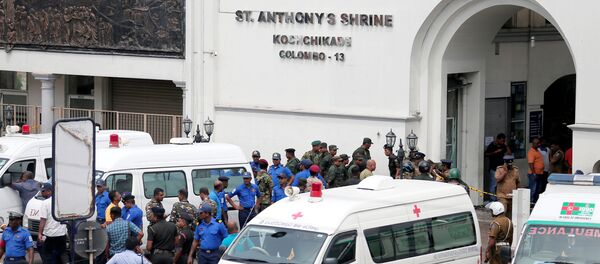New Delhi (Sputnik): As part of Sri Lanka's ongoing resolve to address the security questions raised by the country's worst-ever terrorist attack last month, the island nation of approximately 22 million people has decided to ban all mosques which are believed to be influenced by extremists.
"Measures are being taken to ban the mosques operating under the authority of the National Thowheed Jammath and Jamathei Millathu Ibraheem," MRM Malik, Director of the Department of Muslim Religious and Cultural Affairs said on Wednesday.
READ MORE: Sri Lanka Asks India to Send Anti-Terror Commandos After Easter Blasts — Report
Sri Lankan President Maithripala Sirisena had earlier banned National Thowheedh Jamaath (NTJ) and Jamathei Millathu Ibrahim (JMI) groups, which are suspected of being behind the Easter Sunday blasts on 27 April.
The director has instructed officials to report about those mosques operating under the influence of NTJ and JMI in their districts within a week.
"The permission for these (2,000) registered mosques will be investigated in the coming weeks," the department said.
On Sunday, the department asked the Board of Trustees of the mosques to issue an identity card to the Imam (Islamic preacher), Muazzin (who summons the faithful to prayer from a minaret) and other workers of their mosques in view of the prevailing situation in the terror-hit country.
Since the 21 April blasts, several religious leaders have been taken into custody. Police have seized arms and ammunition during massive raids across the country.
Sri Lanka: Police Find Weapons Cache, 47 Swords in Mosque Raid https://t.co/Nwx1SF3vRP pic.twitter.com/B058Kp6NtM
— MoRde X (@GaVillingili) April 27, 2019
President Sirisena on Tuesday issued a notification amending the Emergency Regulations under Section 5 of the Public Security Ordinance to include a prohibition on involvement in religious, extremist or radical ideologies.
READ MORE: Sri Lankan Intel Believes New Attacks Possible Using Female Bombers — Reports
Sri Lanka, where the majority of the population is Buddhist, has also banned the use of face covering clothing such as the Niqab and Burqa to strengthen national security.
On Tuesday, Megapolis and Western Development Minister Patali Champika Ranawaka also called for the deporting of 800 foreign Islamic clerics engaged in religious teaching at various Madrasas.
The cable operators of Sri Lanka, in a suo motu move, have removed controversial Islamic preacher Zakir Naik's Peace TV from their channel list. India and Bangladesh had already banned the channel founded by Naik.
Cable operators in Sri Lanka block Zakir Naik's Peace TV. | @NikunjGargN shares details with @Swatij14. pic.twitter.com/zIBjAtpup4
— TIMES NOW (@TimesNow) May 1, 2019



